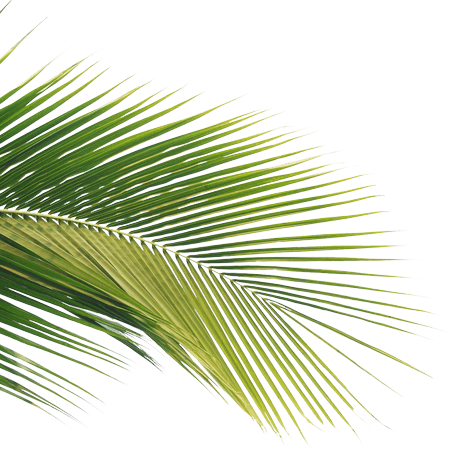Mar 20., 2016 / Homilies, Soul Food
Transforming Our Pain
This homily was given by Fr. Arnel Aquino, SJ, on Palm Sunday, 20 March, 2016, at the Cenacle Retreat House.
I’m one of 10 Jesuits assigned to San Jose Seminary. This is the time of the year when we evaluate applicants from all over the country. In every batch of young men we evaluate, at least three or four have fathers who are drug addicts. Now I’m used to hearing young people having jobless fathers, drunkards, violent fathers. But I still have to get used to fathers who are drug addicts. With neither shame nor pride, these sons openly admit that they’ve suffered incredible violence from their fathers. It’s really very sad. On the other hand, you’d marvel at how these men have turned out to be such cheerful prospects for the priesthood.
In fact, we’ve accepted several such young men this year. Having a drug addict for a father is not an impediment to acceptance in a seminary. They have very clear motivations, they’re psychologically honest, they have a nourishing prayer life, and a good disciplinary record. But as soon as they step into San Jose, we put all seminarians through mandatory counseling. Many find it excruciating to go through counseling at the beginning. But as years wear on, all our seminarians eventually say the pain has been worth it.
This reminds me of Fr. Richard Rohr, a modern Franciscan spiritual guru. In books and lectures, he repeats a line I will not forget for as long as I have my wits about me: “If we do not transform our pain, we will most certainly transmit it.” Many seminarians come wounded by family. So, we hope that putting them through counseling will transform their pain; not only so they don’t hurt anymore, but also so that they don’t transmit it anymore—like their fathers had transmitted it to them, and like their grandfathers passed it onto their fathers, and on and on, further back into the valley of darkness and tears.
In my own life and that of my friends, I’ve seen three of many ways by which we’re able to transform our pain. Transform our pain into what? Into something more life-giving, something that neutralizes its poison, so that it stops with us. First, we begin to transform our pain with humility: accepting that we are wounded, that we need help. This demands an almost brutal psychological honesty, especially because our pain unearths ugly emotions and traumas we never had control over, and yet now that we’re older, we’ve visited them upon others in the process. Secondly, we transform our pain by sharing it. We talk about it with someone who can understand and assist us. I believe that our more serious pains in life are meant to be shared, especially with our closest friends. We were never meant by God to suffer alone. In fact, it’s usually the lone sufferers by choice who heal the slowest—and who tend to transmit their pain the most.
Third and last for today, we transform our pain by offering it for others.
When the great filmmaker Marilou-Diaz Abaya was in the last stages of her cancer, she listened to programs on Radio Veritas at which people called in their prayer requests. As she lay in bed, the good woman listed down on a notebook the callers’ names, people she didn’t know from Adam. Alongside their names, their prayer requests. Then, she prayed for them. But part of her prayer was offering her own condition on behalf of these strangers. Imagine that. I also have a friend who suffered from very deep sadness and meaninglessness. Other than her medications, what kept her from surrendering to the darkness was her conviction that God can use her pain, in some mysterious way, towards the healing of her troubled family.
We don’t have the scientific, sociological, anthropological evidence backing up what we call “redemptive suffering”, or as I understand it, transforming our pain by offering it for others. I don’t think it’s payment to purchase pity from God, as though in a kind of fiscal exchange, God will grant us what our suffering can buy. No. To offer our pain and suffering for others is, first, a confession that despite everything, we have nevertheless been blest beyond imagination. It’s like offering our gifts at the altar—gifts we don’t mind parting with, however painful, because God has blest us with so much more besides. Secondly, offering our pain for others is our way of affirming that all of us are desperately and totally dependent on God. In fact, we’re able to withstand suffering only because God has never abandoned us….so that, thirdly, instead of falling into that sink-hole that leads to the darkness of self-prison, offering our suffering for others is our way of begging God to find some use, any use for our offering, to help ease the suffering of others—in some mysterious way. Because if we could offer prayers for others, then surely we could offer our suffering for them, too. Basta, bahala na ang Diyos kung papaano niya gagawin…basta magtitiwala tayo na maaari niya itong gawin.
In a few days, we will commemorate the passion, death, and resurrection of a man who knows what it means to suffer the senseless, envy-driven, cruel, and painful death. But we know how he offered his body and blood to the Father who has since transformed that suffering to benefit us. Now, 3000 years later, we have a choice. We can see our pain either as something useless, dead-end, unfair, and self-defeating…or we can accept it, share it, and offer it for others by asking God to transform it—towards the healing of our loved ones, towards the forgiveness of our sins, and towards the lightening of the burden of those more sorrowful than we.
So as we transform our pain and suffering with the help of the Lord, may we do all this in memory of him—especially as we welcome Holy Week.










LEAVE A REPLY